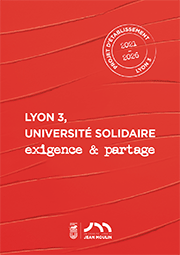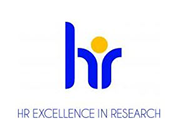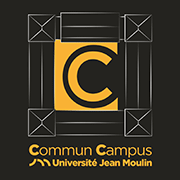AccueilRechercheLes productions scientifiquesThèsesThèses soutenuesThèses soutenues - 2006-2020Thèses soutenues - 2011
-
Partager cette page
- Recherche,
DRAME Alioune
La Francophonie au Sénégal, de la colonisation à la mondialisation : un enjeu identitaire
Publié le 21 octobre 2011 – Mis à jour le 17 février 2012
Thèse en Droit - Science politique Soutenue le 29 septembre 2011 Thèse en co-tutelle avec le Dakar (Sénégal)
Le Sénégal est un carrefour humain et géographique où cohabitent et interfèrent trois grandes civilisations : une négro-africaine, une arabo-musulmane et une occidentale. La part francophone de son identité est née de l’héritage culturel laissé par sa rencontre avec la France. Si cette affinité culturelle explique en partie la présence du pays dans la communauté francophone, son attachement à la Francophonie est lié aussi à la figure emblématique de Léopold Sédar Senghor et à sa représentativité diplomatique et symbolique au sein des institutions francophones. Paradoxalement, la francophonie ne suscite pas l’enthousiasme au sein de la jeunesse sénégalaise, perçue souvent comme assez ringarde ou peu utile dans la mondialisation actuelle. Le pourcentage de Sénégalais parlant français peine à dépasser les 20%. Sans perdre son importance, la francophonie semble y perdre son ampleur, confrontée à la wolofisation et à l’arabisation progressive de la société. Mais, ce sont effectivement les défis de la mondialisation qui continuent à donner toute sa place à la francophonie au Sénégal. Organisée comme union géoculturelle, la Francophonie actuelle, avec ses valeurs de diversité, de dialogue, de solidarité, constitue un pôle dans la mondialisation. Le pays en a besoin pour préserver son identité dans la mondialisation libérale qui a tendance à tout uniformiser et dans une Afrique où les géants sont anglophones et où les États francophones sont affaiblis par les conflits et la mal gouvernance. Il faudra donc beaucoup de volontarisme de la part de l’État sénégalais pour la promouvoir et de la part de l’OIF, qui pourrait se servir du Sénégal comme tête de pont de la Francophonie en Afrique, ce continent qui en est le cœur vivant.
Senegal is a human and geographic crossroads where coexist and interfere three major civilizations: an African, an Arab-Muslim and Western. The francophone part of his identity is born of the cultural heritage left by the encounter between France and Senegal. If this cultural affinity partly explains the country's presence in the Francophone community, his commitment to the Francophonie is also linked to the emblematic figure of Leopold Sedar Senghor and his diplomatic and symbolic representation within Francophone institutions. Paradoxically, the Francophonie does not arouse enthusiasm in the Senegalese youth, often seen as rather old-fashioned or very useful in today's globalization. The percentage of french-speaking Senegalese hardly exceeds 20%. Without losing its importance, the Francophonie seems to lose its size, faces the progressive wolofisation and arabization of the society. The challenges of globalization continue to give its full place to the Francophonie in Senegal. Organized as a geocultural union, today's Francophonie, with its values of diversity, dialogue, solidarity, is a center into globalization. The country needs to preserve its identity in liberal globalization that tends to unify everything and in an Africa where the giants are Anglophone and where Francophone states are weakened by conflict and poor governance. This will require a lot of voluntarism on the part of the Senegalese government to promote it and on behalf of OIF which could be use Senegal as a bridgehead of the Francophonie in Africa, a continent that is the living heart of the francophone community.
Mots-clés : francophonie, Sénégal, colonisation, mondialisation, identité, langue, français.
Keywords : Francophonie, Senegal, colonization, globalization, identity, language, french.
Directeur de thèse : Michel GUILLOU
Babacar GUYE
Membres du jury :
Albert LOURDE, Professeur, Université Senghor d'Alexandrie
Joël JALLAIS, Professeur, Université Rennes 1
Michel GUILLOU, Professeur émérite, Université Jean Moulin Lyon 3
Babacar GUEYE, Professeur, Université Cheikh Anta Diop de Dakar, Sénégal
Président du jury : Michel GUILLOU
Mention : Très honorable avec les félicitations du jury
Equipe d'accueil : CLESID
Senegal is a human and geographic crossroads where coexist and interfere three major civilizations: an African, an Arab-Muslim and Western. The francophone part of his identity is born of the cultural heritage left by the encounter between France and Senegal. If this cultural affinity partly explains the country's presence in the Francophone community, his commitment to the Francophonie is also linked to the emblematic figure of Leopold Sedar Senghor and his diplomatic and symbolic representation within Francophone institutions. Paradoxically, the Francophonie does not arouse enthusiasm in the Senegalese youth, often seen as rather old-fashioned or very useful in today's globalization. The percentage of french-speaking Senegalese hardly exceeds 20%. Without losing its importance, the Francophonie seems to lose its size, faces the progressive wolofisation and arabization of the society. The challenges of globalization continue to give its full place to the Francophonie in Senegal. Organized as a geocultural union, today's Francophonie, with its values of diversity, dialogue, solidarity, is a center into globalization. The country needs to preserve its identity in liberal globalization that tends to unify everything and in an Africa where the giants are Anglophone and where Francophone states are weakened by conflict and poor governance. This will require a lot of voluntarism on the part of the Senegalese government to promote it and on behalf of OIF which could be use Senegal as a bridgehead of the Francophonie in Africa, a continent that is the living heart of the francophone community.
Mots-clés : francophonie, Sénégal, colonisation, mondialisation, identité, langue, français.
Keywords : Francophonie, Senegal, colonization, globalization, identity, language, french.
Directeur de thèse : Michel GUILLOU
Babacar GUYE
Membres du jury :
Albert LOURDE, Professeur, Université Senghor d'Alexandrie
Joël JALLAIS, Professeur, Université Rennes 1
Michel GUILLOU, Professeur émérite, Université Jean Moulin Lyon 3
Babacar GUEYE, Professeur, Université Cheikh Anta Diop de Dakar, Sénégal
Président du jury : Michel GUILLOU
Mention : Très honorable avec les félicitations du jury
Equipe d'accueil : CLESID
Documentation
Mise à jour : 17 février 2012



